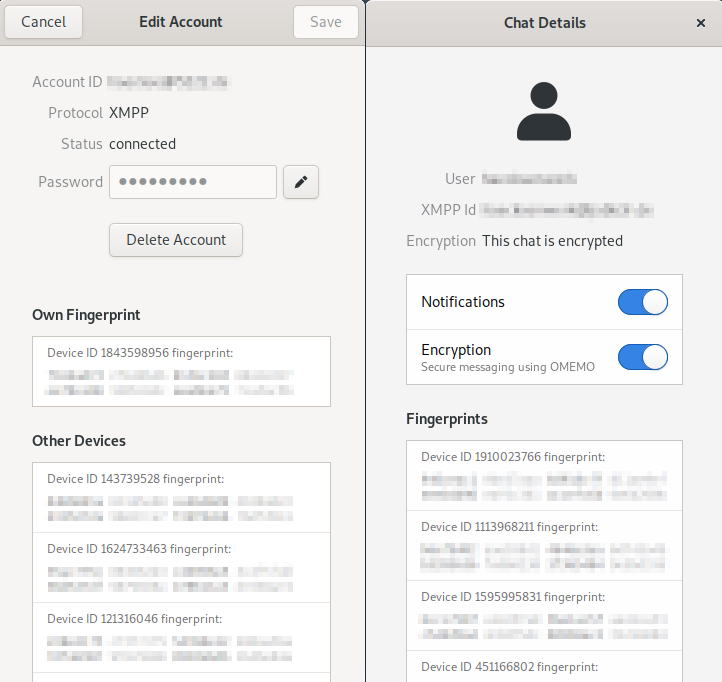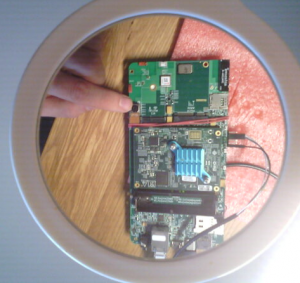Librem 5 June Software Update
Purism
Latest posts by Purism (see all)
- A Quarter Century After Cyberselfish, Big Tech Proves Borsook Right - December 20, 2025
- PureOS Crimson Development Report: November 2025 - December 15, 2025
- Purism Liberty Phone Exists vs. Delayed T1 Phone - December 10, 2025
Hi everyone! The Librem 5 team has been hard at work, and we want to update you all on our software progress.
Conferences
A couple of blog posts back, we mentioned that our hardware engineer gave a talk at KiCon—and it is available for watching now!
Also, recently Tobias Bernard attended the Libre Graphics Meeting, where he had lots of conversation around the future photo viewing application for the Librem 5 phone.
Applications
Libhandy
Libhandy v0.0.10 was released and has a slew of cool new widgets! In summary, the new widgets are:
- HdyViewSwitcher: a view switcher which can automatically adjust its layout to fit narrow screens
- HdySqueezer: a widget that allows switching where the view switcher is
- HdyHeaderBar: an advanced header bar
- HdyPreferencesWindow: an adaptive preferences window for all applications
A nice aesthetic change is that HdyComboRow handles long labels better now—by ellipsizing them.
Below you can see how HdyViewSwitcher makes the Clocks application adaptive.
Below you can see how the HdyPreferencesWindow is used in GNOME Web to make the preferences window adaptive.
We also improved Libhandy’s test suite.
Calls
Work has continued to extend wys to instantiate PulseAudio’s loopback module—which ties the modem’s and codec’s ALSA devices together when a call is activated, and de-instantiates the module when the call is terminated. Since this causes conflicts with hægtesse, a scheme was devised to keep both hægtesse and wys from running at the same time.
Messaging
A chat history is being implemented via an SQLite database. Thank you, Leland Carlyle, for all of your hard work in this area!
Account verification has been added so that now, when you add a new account, a connection is established to the server and (in case of failure) the user is alerted. Thanks to Benedikt Wildenhain for the patch!
XMPP
We are very committed to providing encrypted messaging when the phone ships, so we have made an extra effort to implement OMEMO encryption, via the Lurch
plugin. Recent changes in this plugin have led us to ongoing integration and testing with Chatty.
There is a padlock symbol in the message bar now, indicating whether the chat is encrypted or not. You can also view your fingerprint—as well as your conversation partner’s fingerprints (see example below). Thanks, Richard Bayerle, for all of your work on the Lurch plugin!

Web Browsing
GNOME Web will benefit from the new widgets released in Libhandy 0.0.10, as mentioned above. Additionally, since recent testing has identified some bugs in GNOME Web, our development team has been looking into some of these issues. The outcome has been the reporting of many of those issues upstream.
Initial Setup
We plan to deliver GNOME Initial Setup in the first shipment of the phone—because it is very important for setting up your environment. Before any major porting effort was possible, though, some design effort was needed—and now porting work is underway!
System
So many exciting things are happening at the system level!
After many revisions, the librem5-devkit device-tree has been accepted upstream. To prepare for this, the same device tree name is used both in the kernel and in the flash-kernel as well.
The devkit image went through lots of changes, too. Wlroots v0.6.0 is now available, and contains many of our necessary changes. To make the overall experience look nicer, the shell now prefers the dark theme, and the keyboard auto-hides when the app drawer is opened. Detecting corrupted downloads of images has been made faster by adding a size verification. Thanks to Hugo Grostabussiat for the patch! The devkit image has support for the camera, too–and below you can see the devkit’s first selfie 🙂

Several areas of the kernel have seen major improvements, and we are now very close to some important milestones. One such area is forward porting patches so that the images built for the devkit can switch from a 4.18 to a 5.2 kernel, and we’re almost there! You can find a recent image build with the 5.2 kernel here.
With the new kernel, you will be able to long press the power button to turn on the devkit, and use suspend/resume. To help better detect SoC revisions, an RFC
patch has been sent to improve this. Working towards improving the power management, we are testing cpufreq and preparing some cpuidle tests.
A lot of effort has been put into debugging the sound on the 5.2 kernel. After many hours of work, we have discovered that ATF was blocking access to the aips regions—and upstream ATF has it fixed now!
On the shell side of things, phosh has been made a polkit agent (so things like GNOME Software can ask for elevated credentials). We made some other improvements, like hiding the OSK when it’s not needed, removing the weekday/date from the lock screen, and making it easier to use Glade with phosh. Since a compositor switch is coming soon, the team applied many improvements to the new compositor, phoc (phone compositor). We will be showcasing this new compositor soon, so stay tuned for that!
Also, and to get us closer to separating the bootloader from the OS, we have been putting a lot of effort into placing u-boot in the MMC area. Flash has been enabled in u-boot, so that the DDR PHY firmware can be written to flash. Thank you so much, Kyle Evans, for the work on mainline u-boot!
The work on the graphics stack continues, too. To work towards mainline GC7000 GPU support, we folded the etnaviv part of libdrm into mesa upstream. Our thanks to Christian Gmeiner and Dylan Baker for the review! To take a look at the graphics on the devkit, check the Quake II demo below.
Documentation
To improve the devkit unboxing experience, lots of how-to guides have been added or updated:
- Building uuu – uuu is the tool used to flash the devkit image
- Flashing eMMC
- Using HDMI
- Making cases
- Testing a factory image
- Updating the software
Some more noteworthy updates have been added to the Status of Subsystems page and the devkit peripheral software interfaces.
A big “Thanks!” to everyone that has helped review, and merge changes, into upstream projects; your time and contribution are much appreciated. And that’s all for now, folks—stay tuned for more exciting updates to come!
Recent Posts
Related Content
- PureOS Crimson Development Report: November 2025
- PureOS Crimson Development Report: October 2025
- Landfall: A Case Study in Commercial Spyware
- Consent On Everything?
- 60 Minutes Uncovers Hacks on America’s Infrastructure


